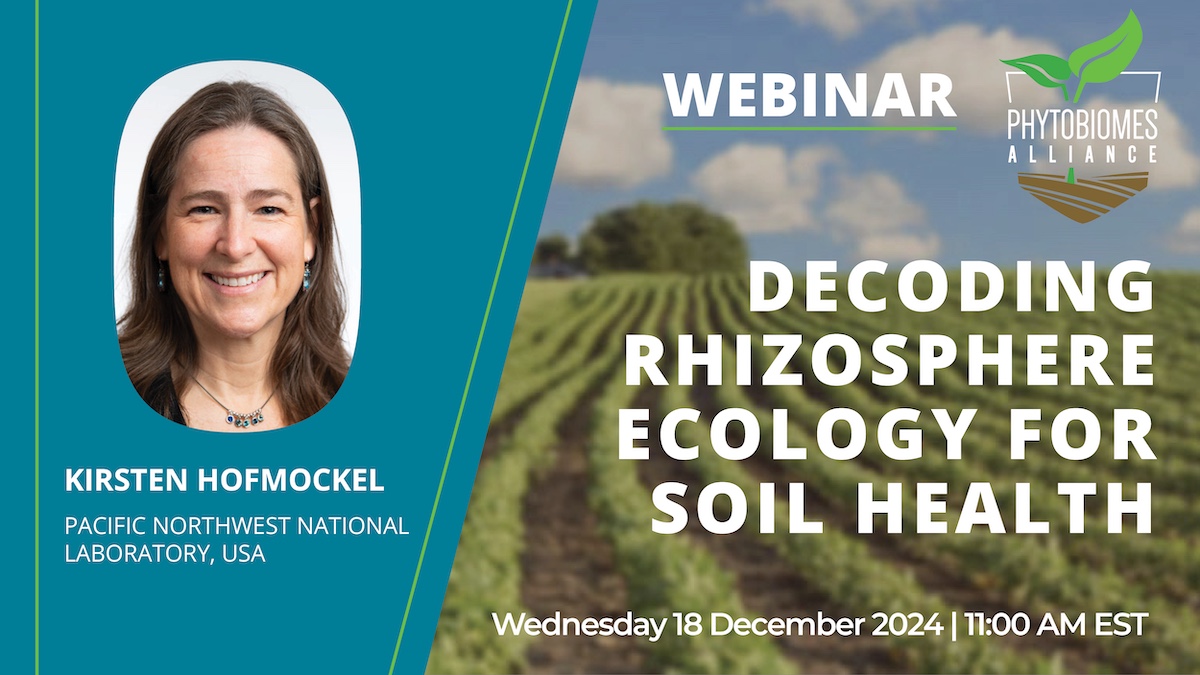
Decoding rhizosphere ecology for soil health
December 18, 2024
Location
Online
Presenters
Kirsten Hofmockel
Chief Scientist
Biological Sciences Division, Earth and Biological Sciences Directorate, Pacific Northwest National Laboratory, USA
Outline
Root exudates are significant carbon pumps, transferring CO2 from the atmosphere into the soil. These exudates vary in quantity and chemistry, profoundly affecting microbial interactions and soil organic matter dynamics, with significant implications for soil biogeochemistry and health.
Recent studies highlight the importance of root exudates in microbial regulation and soil organic matter formation. However, our understanding of exudate molecular composition and input rates remains limited. This points to the need for comprehensive analyses of rhizosphere inputs and quantification of the functional impacts on carbon cycling, sequestration, and soil health.
Our research delves into the metabolic profiles of the rhizosphere, aiming to enhance soil health, boost long-term soil carbon storage, and foster ecosystem resilience. We investigate how soil moisture and drought influence the annual root growth cycle and carbon dynamics. By coupling long-term field manipulations with controlled lab experiments, we investigate the biochemistry mediating rhizosphere interactions expressed in the field. Exudate profiles of field-grown perennial plants focus on their responses to drought stress and the subsequent effects on plant-microbe interactions.
Our results reveal a diverse array of metabolites and lipids in exudates of perennial plants, with greater rates of lipid inputs. Drought shifts the exudate profile with increased carbon inputs and microbial biomass, and decreased basal respiration. Together, these findings advance our understanding of how root exudates influence plant-microbe interactions and the implications for ecosystem functions such as nutrient cycling, soil organic matter formation, greenhouse gas emissions, and soil carbon sequestration.
Recording
Slides
Introduction by Dusti Gallagher
Presentation by Kirsten Hofmockel
